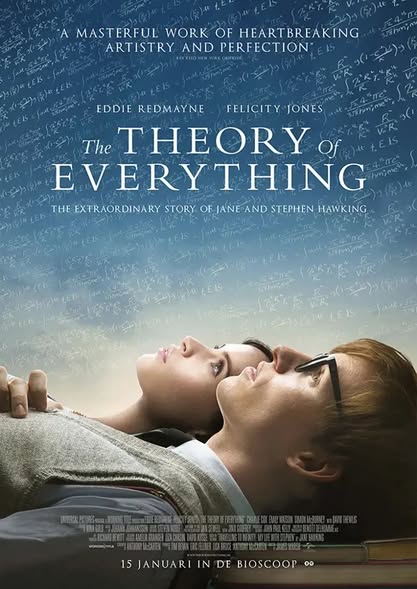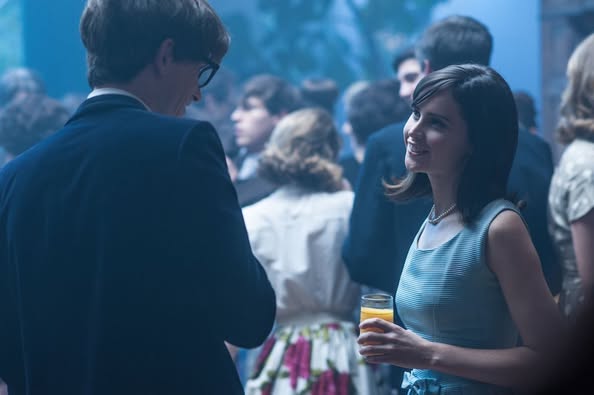The Theory of Everything (2014)

The Theory of Everything (2014), directed by James Marsh, is a poignant biographical drama that chronicles the life of renowned theoretical physicist Stephen Hawking, focusing on his relationship with his first wife, Jane Wilde. The film stars Eddie Redmayne as Hawking and Felicity Jones as Jane, offering a deeply human portrayal of their extraordinary journey together amid the challenges of Hawking’s motor neuron disease.
The narrative begins in the 1960s at the University of Cambridge, where the young and brilliant Hawking is studying cosmology. His passion for science is evident, and he quickly captures Jane’s attention. Their romance blossoms, but their lives take a dramatic turn when Hawking is diagnosed with ALS (amyotrophic lateral sclerosis) at the age of 21, with doctors giving him a limited prognosis. Despite this grim diagnosis, Jane chooses to support him, showcasing her unwavering love and commitment.
Eddie Redmayne delivers a remarkable performance, embodying Hawking’s physical decline while capturing his intellectual brilliance and humor. Redmayne’s transformation for the role, both physically and emotionally, earned him an Academy Award for Best Actor. Felicity Jones complements his performance with a heartfelt portrayal of Jane, depicting her struggles and sacrifices as she balances her role as a caregiver and her own aspirations.

The film beautifully captures the evolution of their relationship, exploring themes of love, resilience, and the complexities of living with a debilitating illness. It highlights not only Hawking’s groundbreaking contributions to theoretical physics, such as his work on black holes and the nature of the universe, but also the profound emotional and personal struggles faced by both him and Jane.
Visually, the film is stunning, with cinematography that captures the beauty of the cosmos and the intimate moments between the characters. The use of light and color enhances the emotional depth, creating a juxtaposition between the vastness of the universe and the personal journey of the couple.

The score, composed by Jóhann Jóhannsson, further elevates the film, infusing it with a sense of wonder and poignancy that resonates throughout the narrative. The music complements the emotional arcs, underscoring the highs and lows of Hawking and Jane’s experiences.
The Theory of Everything is not just a biopic about a scientific genius; it is a touching exploration of love, perseverance, and the human spirit. It invites viewers to reflect on the power of love in the face of adversity and the importance of pursuing one’s passions, regardless of the challenges that may arise.

In summary, The Theory of Everything is a beautifully crafted film that celebrates the remarkable life of Stephen Hawking while highlighting the profound impact of love and support. With stellar performances, exquisite direction, and a compelling narrative, it stands as an inspiring testament to both scientific achievement and the resilience of the human spirit.











